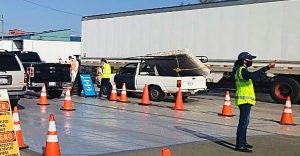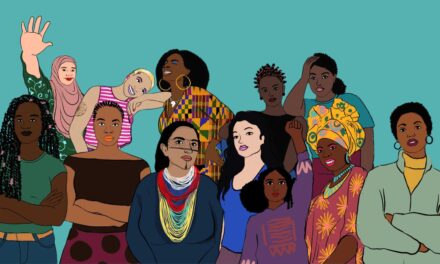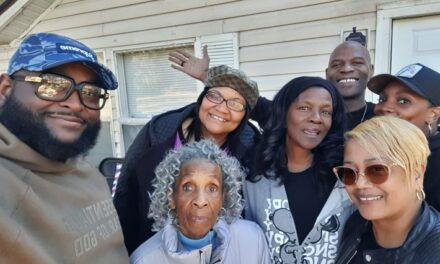By Emil Guillermo
It’s my birthday this week. I am 118.
No lie.
Prior to this week, I figured age was just a number, and stopped counting.
But now I’m into counting each and every year. With honor.
It hit me as I prepared for talks commemorating October as Filipino American History Month.
My father would have been 118 this year. And only now have I realized that his life has been my life; History is my story.
He was born in the Philippines under the American flag in 1905.
That’s seven years after the U.S. bought the country from Spain after the Spanish American War in 1898. The Treaty of Paris sealed the deal 125 years ago. The U.S. paid $20 million mostly for the Catholic artifacts. Note, that’s less than the Golden State Warriors pay some of their star players.
Through the treaty, my father became more than a Filipino. He was a colonized American national, and able to come to America without papers.
He was legally undocumented.
But when my father came to California in 1928, he was not lucky enough to immediately start a family. Not in 1928, ’38, ’48, but in the ’50s.
What happened? Was he a bumbler in loud, unappealing clothes? Or was he just caught in Filipino American history, a racist one where Filipinos were plugged up, stopped up, dammed up.
Or maybe just damned.
Men like my father were brought in to replace excluded Chinese and Japanese labor, which made the male-to-female ratio among Filipinos around 14-1. You couldn’t find a Filipino wife. Anti-miscegenation laws were also in play. Filipinos were shot or lynched just for looking at a white woman. That often caused riots where angry whites protested the “peaceful penetration” of Filipinos.
My father was only able to start a family well after World War II when Filipino women were allowed to come more easily to America. But my father didn’t take part in the segregated U.S. Army. His health and age prevented him from enlisting. But that meant he couldn’t get the biggest boost into the American middle class and generational wealth—the GI Bill.
We never owned a home, never owned a car, and lived paycheck to paycheck.
If you didn’t serve in the military, you relived the ’20s, the ’30s, and the ’40s in the ’50s, ’60s, and ’70s.
But he did meet my mother. Though not a traditional Filipina “war bride,” she had survived the Japanese occupation of Manila. She hid under sewing machines at a seamstress shop to avoid being forced to become a Filipina ‘comfort’ woman to Japanese soldiers.
She was saved by a Spanish citizen who took her under her wing and brought her to San Francisco.
When she met my father in the early 1950s, it was well after the war. But then, the delayed second generation of Filipino Americans began.
As part of the second generation, I was born in the U.S. But I was always treated like the first, my father’s generation.
Filipino American history has always controlled my life. Even when I break glass ceilings, I am wounded by the shards.
During Filipino American History Month, it only makes sense to honor my father. My story begins with his on the day he was born under the American flag in the Philippines. A colonized American national who was too often treated as less than in America.
So today, this week, is my birthday. I am 118. I will always gladly explain how. It’s in the history of our treatment in America.
A Note from An Asian American Israeli
As a pacifist, I find that the news from the Middle East is depressing. The death tolls will rise higher before any talks can begin between the sides.
So, I pray for people I know there, an estimated 35,000 Filipinos in Israel, a small part of the 2-3 million Filipinos in the Middle East.
But one friend is unique. A Filipino American born in the U.S., he married the Israeli sweetheart of his youth and moved to Israel nearly a decade ago.
He is essentially an Asian American Filipino Israeli.
When Israel was attacked, I contacted him to make sure he and his family were fine.
“We are fine, away from the southern conflict areas,” he wrote to me. “A major intelligence and operational failure by the IDF [Israeli Defense Forces]. The watchmen were sleeping. Israel’s 9/11.”
I was relieved to hear he was safe.
“There should have been a trigger with troops rushing in if there was a breach of the high-tech security fence. A quick reaction force. Failure of intel component,” he continued.
But he knew on Sunday something bigger and more deadly was brewing.
“The West Bank is ringed with troops. The northern border is on high alert. And Hezbollah leader Hassan Nazrullah learned his lesson in 2006,” he said. “A big ground war is coming. Two months tops on the fighting. But it is going to be bloody.”
I asked him if he was leaving for safety.
He said he’d canceled a planned trip to the U.S. and was sure he would volunteer for security duties once things were organized.
But he sounded clear and determined as you’d expect an Asian American Filipino Israeli.
“We aren’t leaving.”
He said it with a fearless defiance, full of pride and the willingness to endure whatever it takes in the fight for the right to exist.
It’s the reason the deaths will keep rising, until someone says enough. And then talks will begin.
That’s too late. For me, it’s enough already.
Emil Guillermo is a journalist and commentator. He does a micro-talk show on www.amok.com





